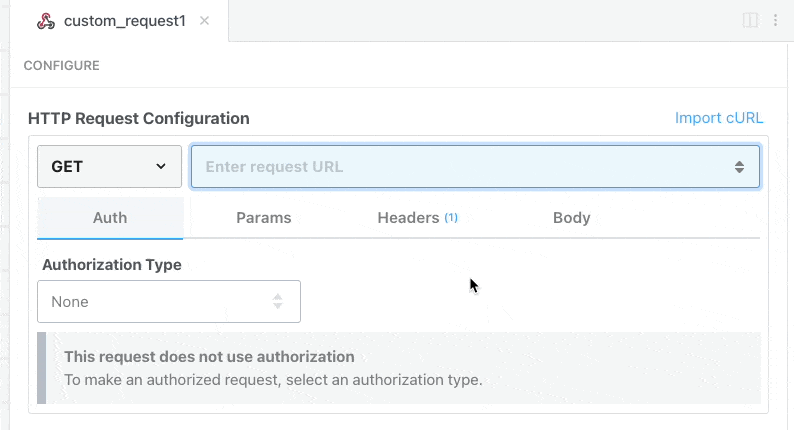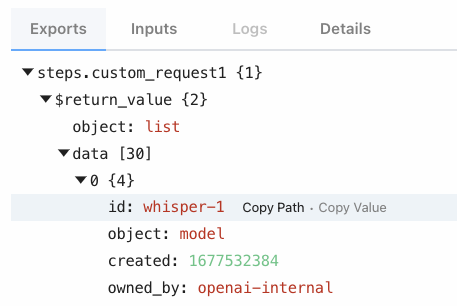What do you want to automate
with HTTP / Webhook and Chargebee?
Prompt, edit and deploy AI agents that connect to HTTP / Webhook, Chargebee and 3,000+ other apps in seconds.
Trusted by 1,000,000+ developers from startups to Fortune 500 companies
Popular Ways to Connect HTTP / Webhook with Chargebee#
Popular HTTP / Webhook and Chargebee Triggers#
Get a URL and emit the full HTTP event on every request (including headers and query parameters). You can also configure the HTTP response code, body, and more.
Get a URL and emit the HTTP body as an event on every request
Emit new event when a customer card has expired. See the Documentation. Please make sure once you deploy this source, you copy/paste the webhook URL to create it in your Chargebee Webhook settings
Emit new event when a customer is changed. See the Documentation. Please make sure once you deploy this source, you copy/paste the webhook URL to create it in your Chargebee Webhook settings
Emit new event when a new customer is created. See the Documentation. Please make sure once you deploy this source, you copy/paste the webhook URL to create it in your Chargebee Webhook settings
Popular HTTP / Webhook and Chargebee Actions#
Create a new subscription for an existing customer. See the documentation
Send an HTTP request using any method and URL. Optionally configure query string parameters, headers, and basic auth.
Send an HTTP GET request to any URL. Optionally configure query string parameters, headers and basic auth.
Send an HTTP POST request to any URL. Optionally configure query string parameters, headers and basic auth.
Overview of HTTP / Webhook#
Build, test, and send HTTP requests without code using your Pipedream workflows. The HTTP / Webhook action is a tool to build HTTP requests with a Postman-like graphical interface.

Point and click HTTP requests
Define the target URL, HTTP verb, headers, query parameters, and payload body without writing custom code.

Focus on integrating, not authenticating
This action can also use your connected accounts with third-party APIs. Selecting an integrated app will automatically update the request’s headers to authenticate with the app properly, and even inject your token dynamically.

Pipedream integrates with thousands of APIs, but if you can’t find a Pipedream integration simply use Environment Variables in your request headers to authenticate with.
Compatible with no code actions or Node.js and Python
The HTTP/Webhook action exports HTTP response data for use in subsequent workflow steps, enabling easy data transformation, further API calls, database storage, and more.
Response data is available for both coded (Node.js, Python) and no-code steps within your workflow.

Connect HTTP / Webhook#
// To use any npm package on Pipedream, just import it
import axios from "axios"
export default defineComponent({
async run({ steps, $ }) {
const { data } = await axios({
method: "GET",
url: "https://pokeapi.co/api/v2/pokemon/charizard",
})
return data.species
},
})
Overview of Chargebee#
The Chargebee API provides a suite of powerful endpoints that facilitate automation around subscription billing, invoicing, and customer management. By leveraging this API on Pipedream, you can build complex, event-driven workflows that react to subscription changes, automate billing operations, sync customer data across platforms, and trigger personalized communication, all without managing servers.
Connect Chargebee#
import { axios } from "@pipedream/platform"
export default defineComponent({
props: {
chargebee: {
type: "app",
app: "chargebee",
}
},
async run({steps, $}) {
return await axios($, {
url: `https://${this.chargebee.$auth.sub_url}.chargebee.com/api/v2/subscriptions`,
auth: {
username: `${this.chargebee.$auth.api_key}`,
password: ``,
},
})
},
})
Community Posts#

